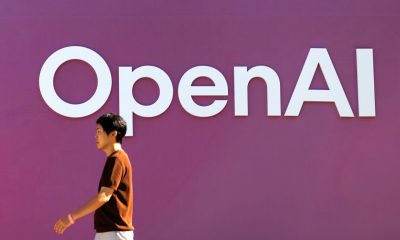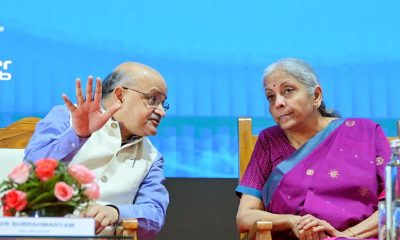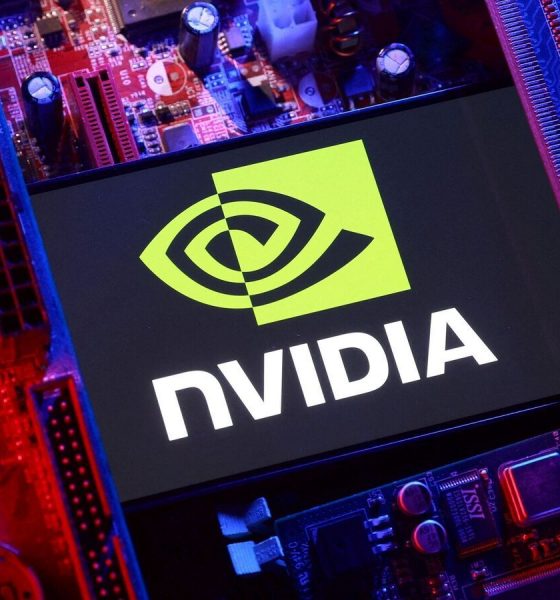
Metaverse
BharatGen is India’s highest-funded AI entity after receiving $112 million under IndiaAI Mission – Crypto News
On Thursday, the ministry of electronics and information technology (Meity) announced the third tranche of investments under its $1.2-billion IndiaAI Mission, selecting eight startups and non-profit organisations to incentivise built-from-scratch large AI models, as well as datasets in multiple Indian languages.
Of the eight, BharatGen, was the largest recipient of the ministry’s net outlay of around $170 million ( ₹1,500 crore), having proposed to build AI models with up to one trillion data parameters in training. Most of these incentives will be in the form of access to graphics processing unit (GPU) chips, which account for up to 90% of the cost of infrastructure for companies that build AI models.
BharatGen received sanction from Meity to use 13,642 Nvidia GPUs for 12 months to train its models. Two senior officials said the estimated net outlay for BharatGen alone was close to $100 million ( ₹860 crore), nearly 60% of its overall spending on AI models.
Other companies selected for incentives include Avataar AI, Fractal Analytics, Makers Lab by Tech Mahindra, Zeintech, Genloop, NeuroDX and Shodh AI. Of these, Avataar, Fractal and Zeintech have proposed to build models with 70-80 billion training data parameters, putting them among the larger projects under the IndiaAI Mission. All said, BharatGen is now the biggest recipient of Meity’s AI incentives as India looks to build a sovereign AI model from the ground up.
A dozen and counting
The IndiaAI Mission, announced in March 2024, spent ₹173 crore ($20 million) in its first fiscal year, FY25, and was allocated $2,000 crore ($230 million) for the current fiscal year. On 26 April, Sarvam received approval from Meity for subsidised access to 4,096 Nvidia GPUs at a total billable cost of ₹247 crore ($28 million). On 30 May three more startups—Gan.ai, Gnani and Soket—were selected for incentives to build indigenous, sovereign AI models.
At a press conference after the announcement, S Krishnan, secretary at Meity, said the ministry would make “one more tranche of approvals for startups before the end of this fiscal year”. He added that the ministry was open to increasing the fiscal limit approved under the AI Mission, “as required”.
With this allocation completed, the ministry now has 12 companies incentivised to build large local-language AI models and offer services and applications to corporates and public service entities.
Ashwini Vaishnaw, union IT minister, said at the announcement, “The development of AI requires sweeping resources, as BharatGen’s project showed. This will require additional incentives in the long run—we will add 10,000 more GPUs to boost more missions.”
Vaishnaw added that Meity would publish an AI governance framework by 28 September. The framework would not be regulatory or prescriptive, but seek to offer recommendations on development and deployment of AI, with an emphasis on safety, he said.
With this, Meity will have used more than a fifth of the mission’s funds in 18 months just for indigenous AI models—including sourcing GPU infrastructure from cloud computing companies, offering subsidised access, and building AI Kosh, an AI marketplace similar to Hugging Face, to host models and AI applications built in India.
Rishi Bal, executive vice-president at BharatGen, said the company’s goal is to build a large AI model “whose training dataset is in the hundreds of billions of parameters”. He added, “The incentives from Meity will come in the form of GPU access as well as additional cash that will help in streamlining our operations. We had already raised ₹235 crore ($27 million) from the National Mission on Interdisciplinary Cyber-physical Systems (NM-ICS), and incubated our operations at the Indian Institute of Technology, Bombay, last year.
“In the past 10 months we’ve built and published multiple models including Param. Now, our goal is to tap a vast trove of data, for which we’re also building and open-sourcing an Indic language database in more than 22 languages, called Bharat Data Sagar.”
Commercial success may elude startups, expert say
However, industry experts said Meity’s approach may not facilitate a commercial success for the chosen startups. “Most of the startups being incentivised by the IndiaAI Mission are building AI models focused on Indic-language data. To that end, these startups will likely cater to specific sectors such as agriculture, education or maybe even retail, alongside public utilities,” said Anushree Verma, director analyst – emerging technologies at Gartner.
She added that this approach may not allow India to build an AI model framework that can be replicated around the world. “This focus will likely limit the potential of global business for the startups and have them cater to India only. Enterprises are not a part of the government’s focus here—they are still largely attuned to using global models made by the likes of Google, OpenAI and others,” Verma said.
Ganesh Ramakrishnan, chair professor for computer science at IIT Bombay and principal investigator at BharatGen, added that the entity, which has been built as a non-profit firm for now, has already seen real-world business interest “through conversations with HDFC Bank, IBM and Zoho, among others, who are all interested in using a truly indigenous AI model to build applications on top of”.
“The cost of running global AI models in Indian languages, in which the latter make for hardly 2-3% of the training dataset, is also very high. Plus, myriad nuances—such as rendering the rupee symbol—are missed out. These are the areas for which corporates are interested in using our model, and the early use cases and results have been very promising,” he added.
Bal and Ramakrishnan affirmed that while Meity will not directly hold equity in the body in exchange for funding and incentives, it will appoint a member to BharatGen’s board of directors. “The ministries have been supportive of BharatGen taking its models to a commercial business model. However, we want to ensure that we first build a model that can be effectively used for public service utilities—where government bodies themselves will be key customers. This will help us be self-sufficient in our own billables, and not require us to have venture capital investors whose focus will be on commercial returns,” Bal said.
-
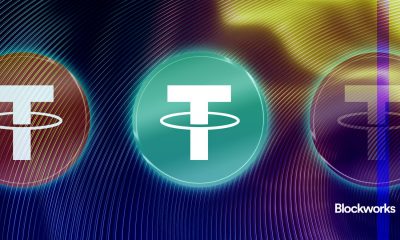
 Cryptocurrency6 days ago
Cryptocurrency6 days agoTether enters US market with USAT stablecoin – Crypto News
-
Business1 week ago
AI Coins Gain as US SEC Crypto Task Force Met Multiple Firms Today – Crypto News
-

 Blockchain1 week ago
Blockchain1 week agoGrayscale Files to Create ETF for LINK Digital Assets – Crypto News
-
others1 week ago
Breaking: Cboe to Launch Bitcoin, Ethereum Continuous Futures on November 10 – Crypto News
-
Cryptocurrency7 days ago
Breaking: $9T BlackRock Plans To Tokenize ETFs Following Bitcoin ETF Success – Crypto News
-
others1 week ago
Grayscale Files Registration Statements for Litecoin, Hedera, and Bitcoin Cash ETFs – Crypto News
-

 Cryptocurrency6 days ago
Cryptocurrency6 days ago78% of Top Alts Beating Bitcoin, ETH Up 2X – Crypto News
-
others1 week ago
Senate Democrats Signal Bipartisan Support With Release Of CLARITY Act Framework – Crypto News
-

 Cryptocurrency7 days ago
Cryptocurrency7 days agoBitcoin price surges to $1,15,660 as ETF inflows and Fed policy shift align – Crypto News
-

 Cryptocurrency6 days ago
Cryptocurrency6 days agoLINEA price analysis as muddled airdrop causes plunge despite high-profile listings – Crypto News
-

 Cryptocurrency4 days ago
Cryptocurrency4 days ago‘Crypto Is Dumber Than Crap’: Dave Ramsey – Crypto News
-

 Cryptocurrency6 days ago
Cryptocurrency6 days agoWLFI and What Eric Trump’s Alt5 Exit Means For Its Future – Crypto News
-

 De-fi1 week ago
De-fi1 week agoSolana-Based AgriDex Sees $9M in Stablecoin Trades Across African Markets – Crypto News
-

 Cryptocurrency5 days ago
Cryptocurrency5 days agoFriday charts: Ellison is having fun again – Crypto News
-

 Cryptocurrency5 days ago
Cryptocurrency5 days agoDogecoin Price Skyrockets as DOGE Massively Outpaces Bitcoin, Ethereum Gains – Crypto News
-

 Cryptocurrency5 days ago
Cryptocurrency5 days agoEthereum Devs Are Underpaid by Over 50%: Report – Crypto News
-
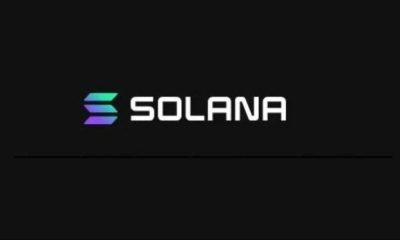
 Cryptocurrency5 days ago
Cryptocurrency5 days agoGalaxy Digital Pulls $40M Into Solana Amid Record-Breaking DeFi Surge – Crypto News
-

 Cryptocurrency4 days ago
Cryptocurrency4 days agoEthereum maps a 6-month privacy plan – What changes for users now – Crypto News
-
others3 days ago
Solana Price Prediction: Analyst eyes $1,250 as Galaxy Digital and Forward Industries Intensify Accumulation – Crypto News
-
others3 days ago
Solana Price Prediction: Analyst eyes $1,250 as Galaxy Digital and Forward Industries Intensify Accumulation – Crypto News
-

 Cryptocurrency5 days ago
Cryptocurrency5 days agoSui price rises as broader crypto market bounces – Crypto News
-

 Cryptocurrency4 days ago
Cryptocurrency4 days agoOndo surges as RWA growth fuels price rally – Crypto News
-
Business1 week ago
SEC Delays Decision on Bitwise Dogecoin ETF Ahead First DOGE ETF Launch – Crypto News
-
Business1 week ago
Metaplanet Upsizes Capital Raise To $1.4 Billion To Buy More Bitcoin – Crypto News
-

 Cryptocurrency7 days ago
Cryptocurrency7 days agoUS Might Start Holding Bitcoin as Strategic Asset, Galaxy Analyst Predicts – Crypto News
-

 Business7 days ago
Business7 days agoCan Algorithmic Pricing Disclosures Build Consumer Trust? – Crypto News
-
Cryptocurrency5 days ago
Why is Pepe Coin Price Rallying Today, September 13? – Crypto News
-
Business1 week ago
Meme Coin Price Prediction: Shiba Inu, Pepe Coin, Dogecoin, TRUMP – Crypto News
-

 Metaverse1 week ago
Metaverse1 week agoAI tools can help, but they can also cause trouble. What advisors need to know. – Crypto News
-
Technology7 days ago
Why Arthur Hayes Is Doubling Down on ENA $1M Surge – Crypto News
-

 Cryptocurrency6 days ago
Cryptocurrency6 days agoStreamer Gets Slapped by Gym Influencer Bradley Martyn, Pumping Solana Token – Crypto News
-

 others1 week ago
others1 week agoEuro under pressure ahead of protests and 2026 budget – Crypto News
-
Business1 week ago
SEC to Host Crypto Privacy Roundtable on October 17: Agenda and Key Details – Crypto News
-
Business1 week ago
SEC Delays Franklin Templeton Solana ETF Decision Until November – Crypto News
-
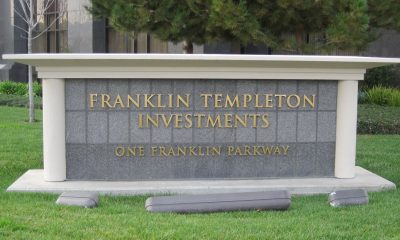
 Cryptocurrency1 week ago
Cryptocurrency1 week agoBreaking: Major XRP ETF Proposed by $1.5 Trillion Financial Giant Faces Fresh SEC Delay – Crypto News
-

 Blockchain6 days ago
Blockchain6 days agoBitcoin in Holding Pattern While Altcoin Treasurys Gain Ground – Crypto News
-

 others3 days ago
others3 days agoGold steadies below record highs ahead of pivotal Fed decision – Crypto News
-

 others1 week ago
others1 week agoWhat’s fueling the 8% revenue growth? – Crypto News
-

 Cryptocurrency1 week ago
Cryptocurrency1 week agoWorld Liberty Financial is perfecting TradFi – Crypto News
-
Cryptocurrency1 week ago
Eric Trump Removed From WLFI Treasury Firm Alt5 Sigma’s Board – Crypto News
-
Technology1 week ago
Grayscale Files Registration Statements for Litecoin, Hedera, and Bitcoin Cash ETFs – Crypto News
-

 Technology1 week ago
Technology1 week agoBGMI 4.0 Update: Krafton rolls out Spooky Soiree with new modes, weapons, features on Android — how to install – Crypto News
-

 Technology1 week ago
Technology1 week agoMicrosoft AI CEO Mustafa Suleyman explains why AI should never get rights: ‘Dangerous and misguided’ – Crypto News
-

 Blockchain7 days ago
Blockchain7 days agoETH Eyes $6.8K In Q4 as Accumulation, CME OI Surges – Crypto News
-

 Blockchain6 days ago
Blockchain6 days agoPolymarket Targets $10B Valuation With US Launch Plans – Crypto News
-

 Blockchain6 days ago
Blockchain6 days agoMid-Sized Bitcoin Holders Break Records With 65K BTC Weekly Accumulation – Crypto News
-
Technology6 days ago
GEMI Stock Rises Over 20% Following Gemini’s Debut on Nasdaq – Crypto News
-

 Blockchain6 days ago
Blockchain6 days agoKashi Is Ready To Fight For Prediction Markets Amid New Lawsuit – Crypto News
-

 Technology1 week ago
Technology1 week agoXVS price turns bullish as Venus Protocol recovers funds stolen from phishing scam – Crypto News
-

 Blockchain1 week ago
Blockchain1 week agoHow to Turn Crypto News into Trade Signals Using Grok 4 – Crypto News













